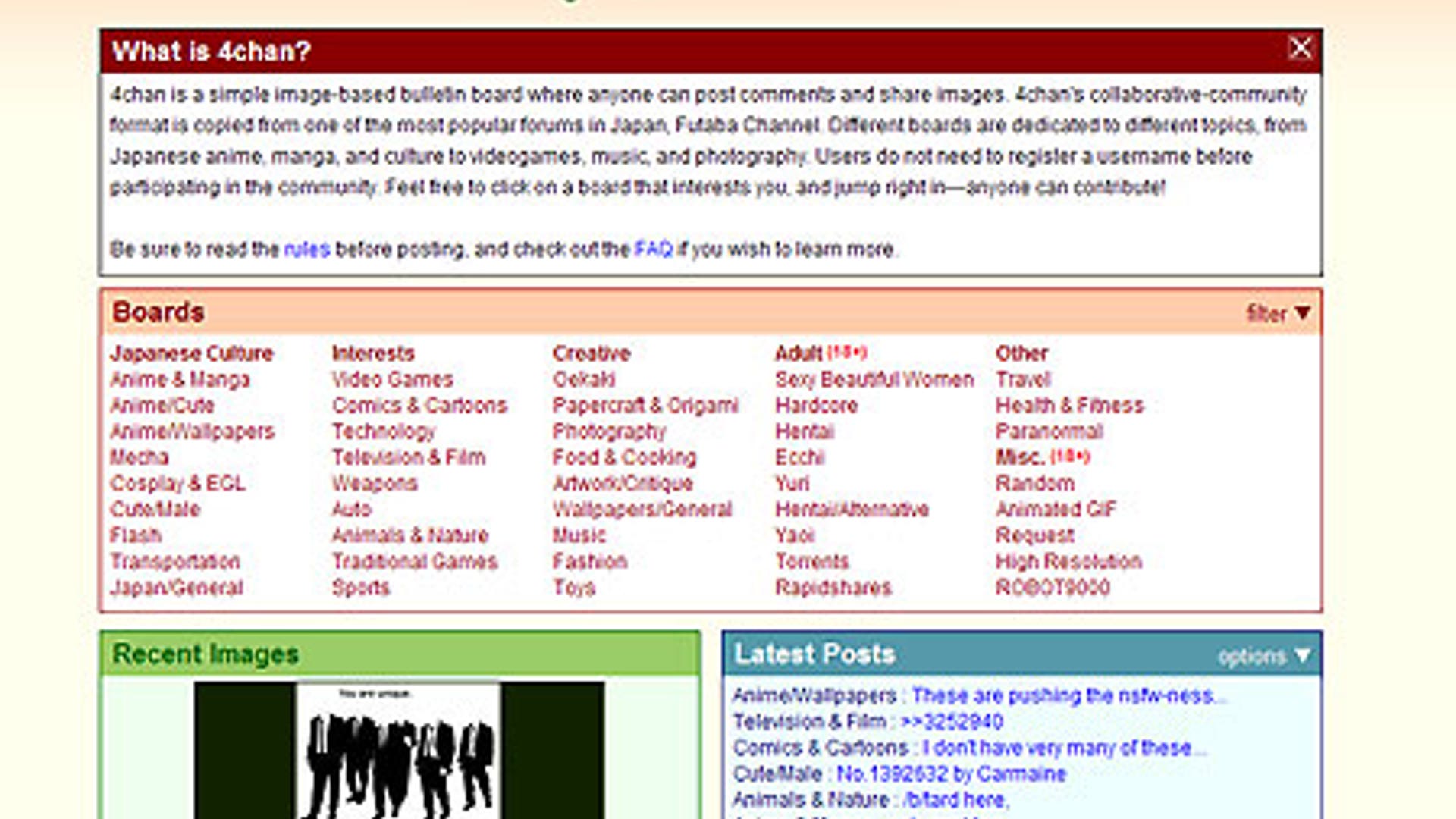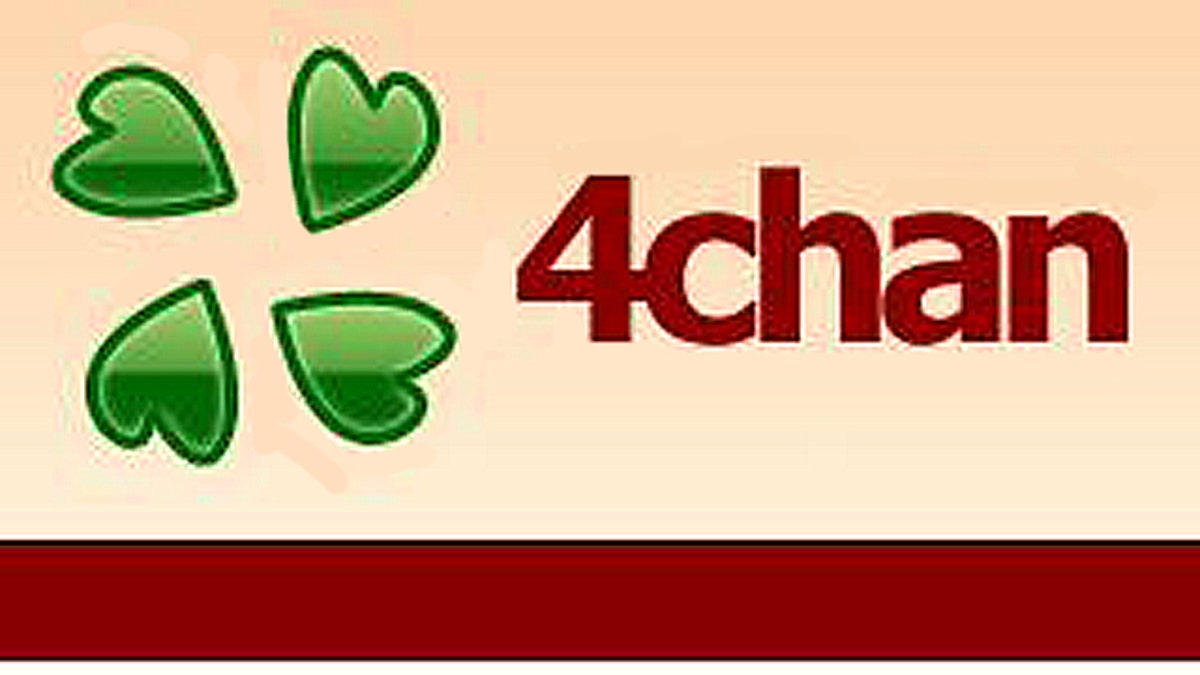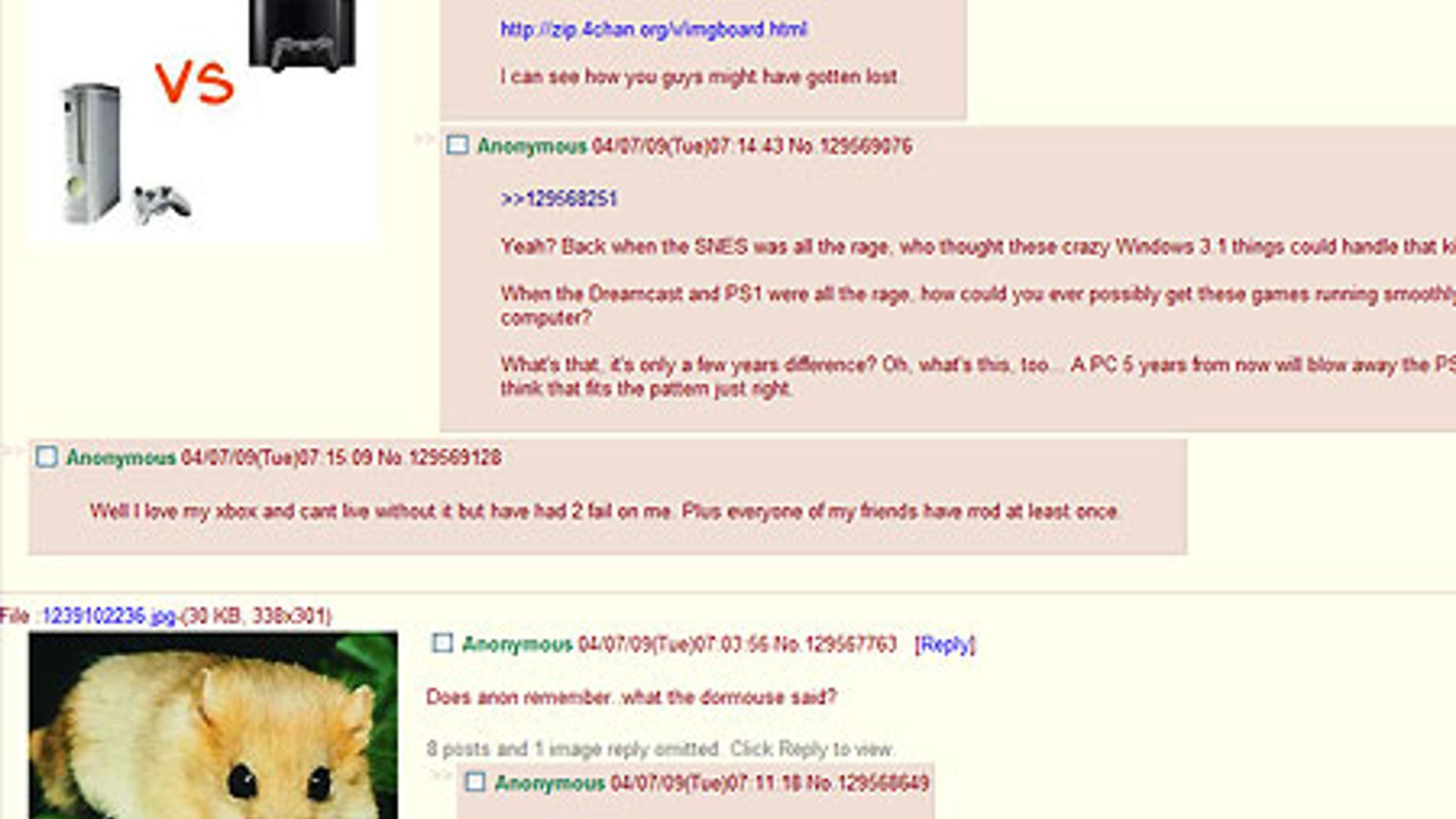When we think about the internet's early days, especially places where people gathered to share thoughts and pictures, a few spots really stand out. One of these, quite frankly, began its journey way back in October 2003, started by a fellow named Christopher Poole. This spot, which many just call an "imageboard," quickly grew into a place where folks could talk about nearly anything under the sun, from video games and television shows to books, cooking, and even the stories of the past. It’s a very interesting corner of the web, and its story, you know, has many layers.
This particular site, you see, works a bit differently than many others. It was set up so people could share pictures and then chat about them. Unlike a lot of places online where you sign up with a name and profile, this one doesn't really have a registration process for most people. Only the folks who work there can sign in that way. This means that, in a way, most of the people who post there do so without putting their name on it, which gives the conversations a rather unique flavor, allowing for very free expression, which is sort of its hallmark.
Because of how quickly things appear and then fade away on this kind of site, keeping a record of what's been said and shared becomes a bit of a challenge. That's where the idea of a "4chan archive" comes into play. It's about gathering and saving these digital conversations and images, making sure that moments from the site's past don't just vanish into thin air. There are, actually, various groups and tools out there that take on this task, all working to collect these bits of internet history, which is, you know, quite a big job.
- West Los Angeles Va Medical Center
- Icelandic Phallological Museum
- Freak Athlete
- El Jefes Taqueria Cambridge
- Amc Factoria
Table of Contents
- What's 4chan All About, Anyway?
- How Do People Save 4chan Archive Bits?
- Who Helps with the 4chan Archive Work?
- What Sorts of Things Are in the 4chan Archive?
- Specific Glimpses from the 4chan Archive
- The Story of Macrochan - A Big 4chan Archive
- Looking at Older 4chan Archive Discussions
- Why Does a 4chan Archive Matter?
What's 4chan All About, Anyway?
So, what exactly is this 4chan thing? Well, it's an English-language website that took its inspiration from a similar kind of site over in Japan, called Futaba Channel. The main idea behind these places is that people post pictures, and then others talk about those pictures. They call these kinds of sites "imageboards." Christopher Poole, who was just fifteen years old at the time, got it going in 2003. When it first started, the main discussions, in a way, were all about anime, which is Japanese animation.
Over time, though, the topics really spread out. You could find conversations about a very wide range of subjects. People would gather to chat about video games they were playing, television shows they were watching, and even books they were reading. There were also discussions about cooking, different kinds of weapons, and, you know, music. History buffs could find a spot, as could those interested in technology, physical fitness, politics, and various sports. It became a place for many different interests, which is pretty interesting, if you think about it.
How Do People Save 4chan Archive Bits?
Given how quickly new posts appear and older ones vanish on 4chan, keeping a record of everything is a big job. There are, actually, some clever ways people try to build a 4chan archive. One method involves using special computer programs, or scripts, that can pull information directly from the site. These scripts are designed to grab entire discussion threads, including all the pictures and words, using the site's own technical pathways. This helps in collecting a lot of the site's activity, so it doesn't just disappear.
Some folks have even bigger plans for these collected bits of information. One idea mentioned is using these saved discussions to "feed some computer brain projects at some point." This sounds like it means using the vast amount of user-generated content to train artificial intelligence or other complex computer systems. It's a way of looking at the collected data not just as history, but also as a resource for future technical work, which is, you know, pretty forward-thinking.
Who Helps with the 4chan Archive Work?
There are various groups and individual efforts dedicated to creating a 4chan archive. One such organization has the broad goal of saving, looking closely at, and keeping safe the many special pieces of internet culture. They see value in these online interactions and want to make sure they are not lost to time. This kind of work is really important for understanding how people communicate and create things on the internet, which is, arguably, a big part of our modern world.
Then there are specific projects, like those that focus on saving certain types of content. For example, there's an archive of a 4chan compilation video that came from a site called LiveLeak. This particular video, it seems, had a style that was like a music video. These individual efforts, in a way, contribute to a larger pool of saved content, making sure that even specific, memorable pieces of the site's history are kept for later viewing. It’s a very collaborative effort, in some respects.
What Sorts of Things Are in the 4chan Archive?
When you look into a 4chan archive, you find a very mixed bag of digital items. Some of these saved pieces are simply web pages from the site itself, collected between late 2009 and early 2012. Many of these particular pages came from Chanarchive, or from specific discussion areas like "/b/" and other sections that weren't typically saved by another archiving tool called Fuuka. So, you know, these collections fill in some of the gaps, providing a broader picture of what was happening on the site during those years.
Beyond static web pages, there are also collections of videos and short animated clips, often called webms. These come not only from 4chan but also from other sites like 8chan and YouTube. It's worth noting, however, that some of these collections, like one specifically mentioned, contain content that is not suitable for younger viewers, as it includes almost entirely adult material. This highlights the varied nature of what gets posted and, subsequently, what gets saved in a 4chan archive, which is, in a way, a reflection of the content on the live site itself.
Specific Glimpses from the 4chan Archive
The saved content also includes some very particular items. For instance, there's a record of a second video and an enhanced view of "egg pictures" related to a 4chan information leak, put together by someone known as dvori92. There's also a video that was found on a Russian social media site, my.mail.ru, which had been copied over from YouTube. These specific examples show how a 4chan archive can hold pieces of content that might have spread across different parts of the internet, tying them back to their origins on the imageboard.
Other bits include an archive of some old 4chan banner backups. These are the images that used to appear at the top of the site. All three of these particular files were found on a file-sharing site called Mediafire. These small details, like the banners, help to paint a fuller picture of the site's appearance and how it changed over time. It’s a bit like finding old advertisements or decorations from a building's past, which is, you know, pretty cool for history buffs.
The Story of Macrochan - A Big 4chan Archive
One of the more well-known efforts to build a 4chan archive is a site called Macrochan. This is a very big collection of older images that came from 4chan. It holds over 45,175 pictures, adding up to about 4.6 gigabytes of image data. These pictures date back to the very earliest days of 4chan's existence, with the newest images appearing around 2012. It's a truly significant collection, offering a rare look at the site's beginnings, which is, you know, quite valuable.
Macrochan itself has an interesting history. It doesn't allow people to upload new images, and it has changed hands many times over the years. Currently, it uses a programming language called PHP for its underlying systems. Because of the sheer size and historical importance of its image collection, it would be a very sad thing if this site were to ever stop working or disappear. It serves as a vital record, preserving a huge chunk of early 4chan visual history, which is, in a way, irreplaceable.
Looking at Older 4chan Archive Discussions
Beyond images and videos, there are also saved records of past conversations about 4chan itself. One such collection is an archive of previous talks about the site. The instruction for this particular archive is quite clear: you shouldn't change anything in it. If someone wants to start a new discussion or bring back an old one, they are told to do so on the current discussion page. This approach helps keep the historical record intact, which is, arguably, a good practice for any archive.
This idea of archiving discussions extends to the very nature of 4chan. A "thread" on 4chan, as you know, is a popular English-language imageboard. An imageboard, in its basic form, is a type of internet discussion area where the main focus is on sharing pictures, often with accompanying words and conversations. The very first imageboards, it turns out, were created in Japan as an extension of an older idea called "textboards," which were just for words. So, these archives capture the evolution of online communication, which is, in some respects, a continuous story.
Why Does a 4chan Archive Matter?
You might wonder why all this effort goes into keeping a 4chan archive. Well, sites like 4chan have played a big role in shaping internet culture, influencing memes, online communities, and even some real-world events. Saving these bits and pieces means we have a way to look back and understand how certain ideas or trends started and grew. It's like having a digital time capsule, offering a glimpse into the conversations and creations of a specific online space, which is, you know, quite important for future studies.
Another reason is for research. People who study internet trends, social behavior online, or even the history of digital art can find a lot of valuable information in these saved collections. For example, the Internet Archive, which has its main office in a building that used to be a church in San Francisco, California, provides free access to many collections of digitized media, including some from 4chan. This means that these archives are not just for casual browsing but also serve as a resource for serious academic work, which is, in a way, pretty neat.
These collections, whether they are huge like Macrochan or smaller, specialized sets, offer features like the ability to save media content from a given web address. This practical function makes it easier for individuals and researchers to pull specific items they need. All these efforts, from the big organizations to the individual projects, come together to form a broader effort to preserve a very unique part of the internet's story. It's about making sure that the often fleeting world of online conversations and shared images has a lasting record, which is, really, a big undertaking.
Related Resources:



Detail Author:
- Name : Kane Goodwin IV
- Username : luz63
- Email : lynch.lucie@gmail.com
- Birthdate : 2002-06-10
- Address : 34216 Bosco Forks Apt. 564 Lake Janet, MN 11933-4463
- Phone : +16315619928
- Company : West-Bayer
- Job : Gas Processing Plant Operator
- Bio : Autem sit architecto adipisci temporibus. Quam iste minus nihil. Consequatur ut aut itaque ut.
Socials
twitter:
- url : https://twitter.com/eusebio1698
- username : eusebio1698
- bio : Voluptatem illo veniam exercitationem sint excepturi aspernatur natus. Vel ut ipsa numquam nihil sit debitis eius. Laborum aliquid ut quo molestiae esse.
- followers : 3200
- following : 1128
linkedin:
- url : https://linkedin.com/in/eusebio_quigley
- username : eusebio_quigley
- bio : Sit ut pariatur officiis ut.
- followers : 3796
- following : 2560
tiktok:
- url : https://tiktok.com/@equigley
- username : equigley
- bio : Harum ad dolores distinctio quia repudiandae cumque molestias molestiae.
- followers : 2174
- following : 928